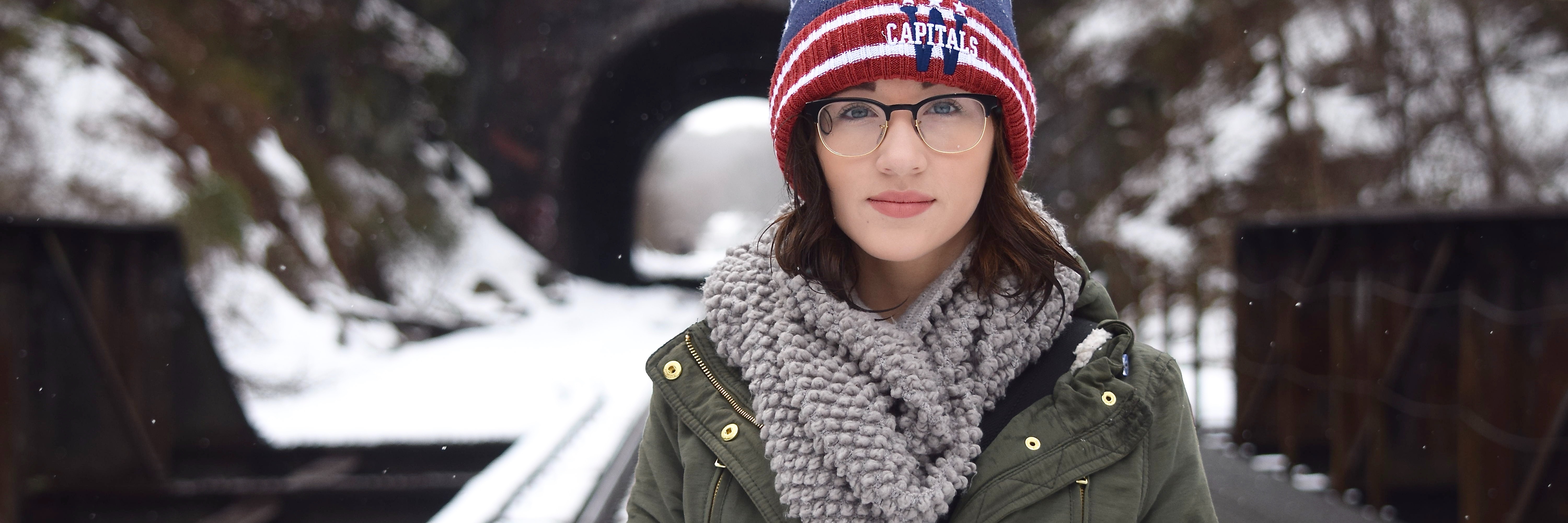When I Learned Having Anxiety Didn't Automatically Mean I Was 'Unhappy'
One of the hardest things about anxiety, in my experience, is that it isn’t always logical. This makes it hard to explain to others why I’m stressed when everything in my life is going well, and — even worse — it makes it hard to justify my own feelings to myself.
I grew up with extended family who looked down on mental illness. I grew up with friends who weren’t unkind on purpose, but teasing wasn’t what I needed at that time. I’ve always had a good life, and I’ve always had anxiety. The problem was, I knew I had a good life, and this prevented me from accepting that I also had anxiety. Because I too, am guilty of assuming that “having anxiety” automatically means “being unhappy.”
The truth is, anxiety isn’t that simple.
Anxiety has to do with how I interpret events. It has to do with my obsession with predicting the future. And for me, one of the main differences between everyday anxiety and an anxiety disorder is action. Normal anxiety happens to everyone, and it’s easy to recognize, because it only happens when a stressful event approaches. And for the most part, everyday anxiety is limited to obsessive thoughts — thoughts that go away after the stressful event is over. I believe anxiety as a mental illness is harder to notice because the obsessive thoughts are there all the time, and it affects pretty much everything I do in life. But because I’d always lived with these obsessive thoughts, I felt like it was “normal.” I got used to it, so used to it, that up until last year, I didn’t even think I had a mental illness to address.
During my junior year of high school, I started to think maybe I had anxiety. I noticed every time a social situation presented itself, it was like a hundred alarms would start going off in my head. I noticed my heart rate would increase at the mere mention of school. I noticed that sometimes, I would struggle to breathe and have this intense feeling that I was about to die. I noticed I was becoming hyper-focused on things that, logically, I knew didn’t matter. And while I was focusing on those things, I missed things that actually did matter. I noticed each day felt like a run-on sentence, that time was going by way too fast. I noticed I was never present in the moment I was in, that my mind was always jumping ahead to moments I may or may not experience in the future. And on my worst days, I noticed that while my mind was racing and obsessing over every bad thing that could possibly happen, I felt physically hollow —as if my thoughts were moving too fast and had left my body behind. I noticed all of these things were happening more and more frequently, and I wanted to get help because it was a very tiring cycle to live in.
Many people told me the voices in my head weren’t real, that it was “all in my head.” But sometimes, they were real. They were the voices of the ones I loved and trusted the most, and their teasing, ignorant remarks became the truths I internalized and repeated back to myself every time I thought about speaking up. These were the voices of people I looked up to, who told me I had a good life, that having anxiety would make me ungrateful, that there is shame in mental illness, that I’d be “crazy” to have anxiety, and that asking for help would make me weak.
Speaking up about my mental illness and seeking help was one of the best things I’ve ever done. The person I was a year ago wasn’t a bad person, nor was she an unhappy person. But my gosh, she had no idea what she was missing.
My anxiety will never be “cured,” but it was never about finding a cure, it was about learning to live with my anxiety. It was learning to challenge my anxiety, because my anxiety doesn’t do well when it’s called out by name. It was about learning when to listen to my anxiety and when to say “no” to anxious thoughts. It was learning not to be scared of the people who would respond with “You’re crazy,” and instead focusing on the fact that by saying “I have anxiety,” I can give someone else the opportunity to say, without fear of judgment: “I do, too.”
And maybe that person needs the opportunity just as much as I once did.
We want to hear your story. Become a Mighty contributor here.
Unsplash photo via Haley Phelps.

